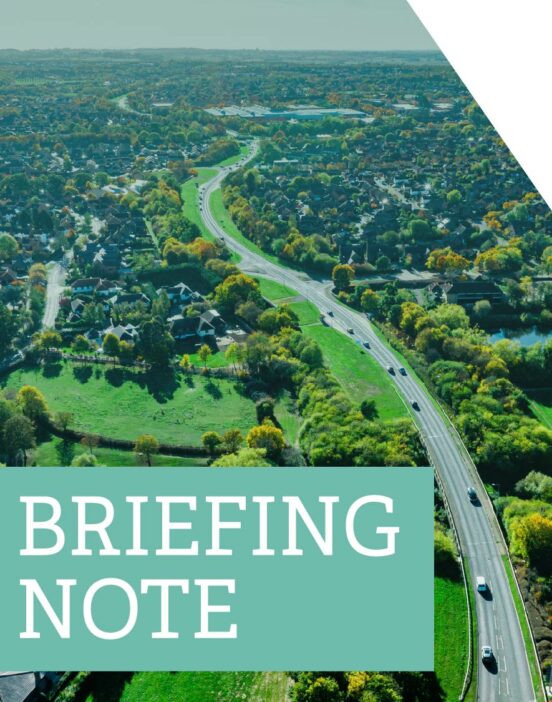The transition to net zero means that the way we drive is changing, bringing with it the prospect of sharp falls in motoring-related tax revenues. For decades, taxing driving has contributed significantly to tax revenues, but the cheaper motoring that electric-vehicle (EV) drivers enjoy – driven in large part by exemptions to taxes paid by drivers of petrol and diesel vehicles – will see these receipts dwindle. This risks an annual £10 billion black hole in the early 2030s and reaching more than £30 billion per year within the next three decades. So, in this briefing note we discuss how the rapid and welcome uptake of electric vehicles must come with reform of motoring related taxes that protects tax revenues, helps limit congestion, and considers the potentially disproportionate impacts on low-to-middle income households. We have outlined a package of measures that ensure EV drivers start to pay their way but also supports a rapid transition away from petrol and diesel vehicles while not putting the burden on those who cannot afford to switch cars.
- The transition to EVs is already well underway, with one in seven cars sold in 2022 electric and now more than 1 million EVs on our roads. While this is good news for the UK’s carbon footprint, it comes with significant fiscal implications, the biggest of which is a rapid decline in Fuel Duty receipts, where annual receipts are expected to fall by £10 billion by the early 2030s.
- The UK is already blighted by congestion, which will get worse as cheaper-to-drive EVs become the dominant form of transport. British road speeds are already slower than those in comparator countries, and, absent policy to address it, traffic could increase by a quarter by 2050, impacting productivity and the living standards of those stuck in traffic, or spending time near busy roads. Congestion is also highly concentrated, with more than four fifths of problematic levels in our cities and large towns.
- The Government has already acted to reform Vehicle Excise Duty (VED), the UK’s other main transport tax, by extending annual charges to EVs from 2025. While this approach will protect revenues, it will see the tax burden shift from those who can afford new cars (two thirds of all spending on new cars comes from households in the richest two income quintiles) than if reforms protected VED levied at the point of purchase.
- VAT is currently levied at a higher rate on electricity from the public–charging network than that used to charge cars at home, forcing drivers who cannot charge at home – 44 per cent of the poorest fifth of households and 49 per cent of private renters – to pay an extra £66 in tax per year.
- A national, per-mile Road Duty system should be introduced that leads to EV drivers paying 6p per mile (plus VAT) from 2027, when one–in–six of all car miles are expected to be electric. This should be implemented through a GPS system, building on existing technology. Drivers of fossil–fuelled vehicles will continue to pay Fuel Duty.
- Local areas should be empowered to introduce Congestion Charging, with a focus on the nation’s cities and large towns. Enabled by, and interlinked with, the national GPS system, this will avoid the need for costly infrastructure and allow simple billing.
- Reforms to VED should go further than existing Government plans, with at-purchase VED modernised such that it is based on vehicle weight – with a per-kg charge for all vehicles above a certain weight limit.
- VAT on public chargers should be reduced from 20 per cent to 5 per cent, matching that enjoyed by motorists able to charge at home. Costs should be recouped from other motoring taxes, with a higher rate on upfront VED likely to be the most progressive option.
Contact
For all research queries about this report, please contact Jonathan Marshall. For press queries, please contact the Resolution Foundation press office.

Jonathan Marshall
Senior Economist,
Resolution Foundation
Email Jonathan
